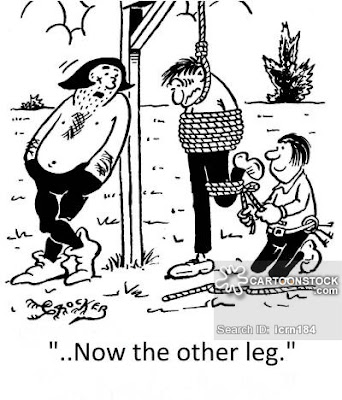.jpg) |
| Manu Neeti Chozhan statue, Madras High Court complex. Flicker.com |
 |
| Manu Neethi Cholan creativity is god |
'The king who gives not a facile audience (to those who approach him) and who does not examine and pass judgment (on their complaints), will perish in disgrace".
............ Thiruvalluvar from "Thrukkural'
 |
| timescontent.com/ |
 |
| www.cartoonstock.com |
 |
| Jantoo Cartoons |
 |
| cartoonistsatish.blogspot.com |
.......... -Thiruvalluvar (from Thirukkural)
The Bench consisting of Justices R.K. Agarwal and D.Y.
Chandrachud not only dismissed the allegation but also made the lawyers understand how the pretty old tradition of justice administration was being followed by the Indian judges in the modern context, keeping in mind the ancient Chola ruler's unshakable faith in the dispensation of a delicate case with utter fairness without any reservation whatsoever. Justice Agarwal observed, "The judges of all the courts, since its very inception, have always maintained this great tradition of the Chola king and are rendering even justice to all concerned, whosoever he or she may be, irrespective of the fact whether they are rich or poor, and whether they occupy a high or a low status in society".
 |
| cow ringing the bell, Manauneethi Cholan.story collector |
(1862) where the legal luminaries - both British and Indians sat as justices and handled several tough cases without deviating from the right path. On seeing the statue of Manuneethi Chozhan standing with two wheels on either side with a calf and a small child beneath each wheel, and a cow in front of the courthouse, his friends at Chennai explained to him about the great Chola ruler who punished his own son based on a complaint made by none other than an animal - a cow. The cow's calf got killed accidentally under the prince's chariot. The apex court explained the Chola ruler had hung a giant bell in front of his palace and announced that anyone seeking justice could ring it and he would be heard. When the cow saw her calf getting killed under the chariot of the prince, she went to the palace, rang the bell and demanded fair justice from the ruler. The king learned the truth from his courtiers and, unremitting as he was, he stuck to the promise of fair justice and ordered his son to be killed for his carelessness. The Chola ruler experienced the same pangs of pain as the cow when her calf was crushed under the wheels of the chariot. Thus the Supreme Court in Delhi drew a parallel between Manu Neethi Chozhen's fair dispensation of justice and the responsibility of judges holding highest legal positions in the country.
Ref:









